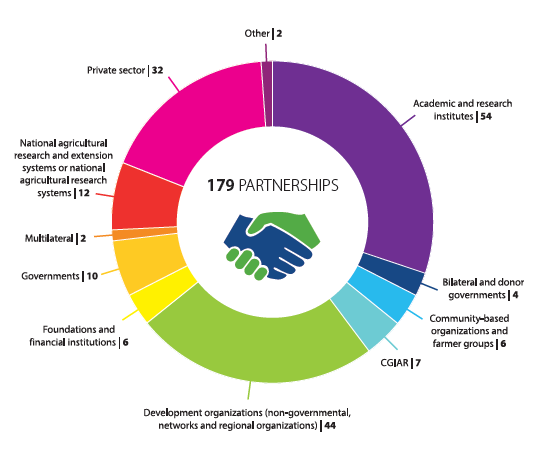WorldFish Annual Report 2018: the private sector as partner for scaling innovation and impact
Discussion details
On 27 June 2019, WorldFish published its 2018 annual report Transforming food systems through fish with infographics, summaries and highlights here. This blog post reviews the ways in which WorldFish is working with the private sector, identifed in this annual report.
In the introductory pages, the relevance of the private sector to the mission of WorldFish is highlighted (p. iii):
Our mission is to deliver scientific evidence and transformational innovations for sustainable development impact through multidisciplinary collaboration and unique partnerships across the public and private sectors.
WorldFish provides rigourous scientific evidence to all stakeholders, including the private sector, and multi-stakeholder partnerships are at the core of its work. In this annual report, WorldFish considers that it has a "unique ability to convene and broker novel partnerships" with the private secotr and other development actors to scale innovations and impact (p. iii). As Dr. Gareth Johnstone, Director General, WorldFish, notes (p. 3):
Our research offers a way to help increase transparency around and accountability for our shared responsibility, to develop and implement inclusive public-private policies and investments and to support a sustainable future blue economy without wrecking our blue planet, where everyone shares equally in the benefits and opportunities.
During 2018, WorldFish developed 86 new

Three key investors in WorldFish are from the private sector and comprise Euroconsult Mott MacDonald, Msingi East Africa Limited and Skretting. Private sector investment is seen as 'a key growth area which [WorldFish] is actively pursuing' (p. 31).
WorldFish also leverages private enterprise to create new jobs and better economic opportunities, particularly for women and youth. For youth, WorldFish has developed the first Aquaculture Vocational Mentorship Course, held at the Lake Harvest company in Zimbabwe with students from Zimbabwe, Tanzania, Zambia, Malawi, Namibia and Lesotho. For women, WorldFish has been using the participatory photo-voice method to highlight the hidden value and challenges in small-scale inland capture fisheries, helping to make the role of women more visible.
About WorldFish
WorldFish is an international, not-for-profit research organization that works to reduce hunger and poverty by improving fisheries and aquaculture. It collaborates with numerous international, regional and national partners to deliver transformational impacts to millions of people who depend on fish for food, nutrition and income in the developing world. Headquartered in Penang, Malaysia and with regional offices across Africa, Asia and the Pacific, WorldFish is a member of CGIAR, the world’s largest global partnership on agriculture research and innovation for a food secure future.
Log in with your EU Login account to post or comment on the platform.